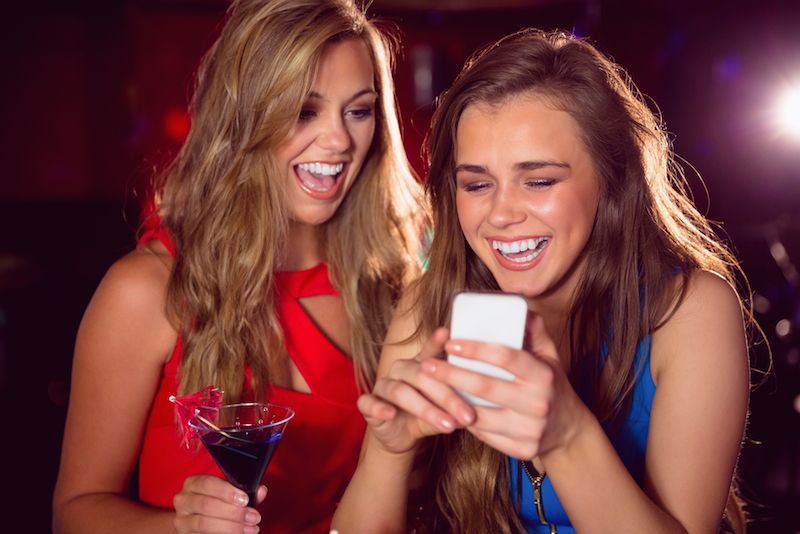Drunk-Dialing Shame May Help Prevent Excessive Drinking in College Kids

Reminding young people about that awkward, uncomfortable embarrassment they feel the day after a night of drunken texting or tipsy Facebook posting could be an effective way to prevent excessive drinking on college campuses, a new study finds.
According to the new findings, roughly two out of three U.S. college students have regretted how they've acted after drinking, whether they drunk-texted someone they had a crush on, or posted an embarrassing message on a friend's Facebook wall.
In fact, nearly 90 percent of the students in the study reported that they had either dialed or texted while under the influence of alcohol, and about 40 percent said they regretted their behavior, the researchers found. [7 Ways Alcohol Affects Your Health]
The findings may help colleges tailor programs aimed at promoting responsible drinking, the researchers said. As heavy drinking has "held pretty constant over the years," the researchers said, college administrators have tried a number of ways to curb alcohol consumption, but such efforts have often focused on the severe consequences of excessive drinking, such as drunken driving and unwanted sexual experiences.
But it could be that the worst-case scenarios resulting from drinking aren't experienced by the majority of college students, said the new study's lead researcher, Eugene Dunne, now a graduate student in clinical and health psychology at the University of Florida.
In contrast, many people engage in low-risk behaviors, such as drunken texting, and may rue the day they sent a certain message, said Dunne, who did the study as part of his master's thesis research in clinical psychology at Towson University in Maryland.
In the study, Dunne and his colleagues gave online surveys to 236 undergraduate students across the country. Participants reported how much they drank, how they behaved and whether they regretted any behaviors.
Sign up for the Live Science daily newsletter now
Get the world’s most fascinating discoveries delivered straight to your inbox.
Students reported drinking between one and 85 alcoholic drinks a week, with people drinking the most on Fridays and Saturdays, the researchers found. Most of the participants (66 percent) said they had regretted at least one thing they'd done while drinking, the study showed.
Moreover, 52 percent said they regretted an electronic communication, such as a phone call, text or Facebook activity, and 42 percent said they regretted a drunken in-person interaction, such as saying something embarrassing.
The students participated in drunken text messaging the most, with 44 percent reporting that they had sent one during the past three months, the study found.
What's more, students who thought that drinking would make them more sociable, easygoing and funny tended to drink more and, in turn, actually regretted more of their behavior than students who did not hold that belief, Dunne said.
"These students are expecting that drinking is going to make them more sociable," Dunne told Live Science. "In reality, they may be finding later on that it made them more sociable, but then they engaged in something they regretted."
It's unclear whether these embarrassing episodes will influence people down the line, but they could have negative impacts on a person's mood, social relationships and college experience, Dunne said.
If colleges raised awareness about the sheer amount of regret that accompanies drinking in college, it could impact student drinking, he said.
Follow Laura Geggel on Twitter @LauraGeggel. Follow Live Science @livescience, Facebook & Google+. Original article on Live Science.

Laura is the archaeology and Life's Little Mysteries editor at Live Science. She also reports on general science, including paleontology. Her work has appeared in The New York Times, Scholastic, Popular Science and Spectrum, a site on autism research. She has won multiple awards from the Society of Professional Journalists and the Washington Newspaper Publishers Association for her reporting at a weekly newspaper near Seattle. Laura holds a bachelor's degree in English literature and psychology from Washington University in St. Louis and a master's degree in science writing from NYU.











